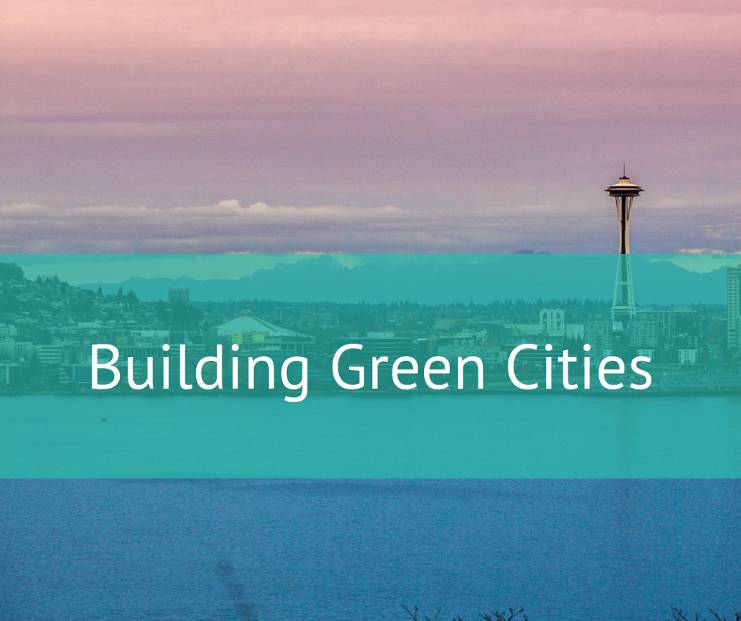Washington’s Puget Sound region is one of America’s fastest growing areas. While this growth brings many benefits to the region, the increasing number of hard surfaces can strain the environment by preventing water from absorbing into the ground, increasing the risk of polluted stormwater runoff that threatens local waterways. To protect the health of our streams, rivers, lakes, and Puget Sound, local jurisdictions can build cities that more effectively manage stormwater runoff, while increasing density and livability for our growing population. Low Impact Development (LID) helps filter and clean stormwater, improving Puget Sound waterways and the quality of life for all who call the region home. Developers, property owners, and jurisdictions can be a part of the solution to stormwater runoff by using LID solutions.

Incentivizing Low Impact Development
The Washington State Department of Commerce’s Guidebook: Incentivizing Low Impact Development (LID) Beyond Permit Requirements presents ways that local governments can incentivize developers to voluntarily incorporate LID on projects in urban growth centers. Using input from interviews, a project advisory committee, and social marketing research, we assessed perceived barriers and motivators for developers to provide guidance and policies to help local governments incentivize developers.
The Guidebook includes tools and outreach materials that local governments can utilize to encourage developers to go beyond existing stormwater requirements; including factsheets for best management practices and a variety of incentive programs. To view or download the Guidebook, please visit: https://www.commerce.wa.gov/serving-communities/growth-management/guidebooks-and-resources/
Why is this important?
While existing policies ensure the use of some LID in new and redevelopment, additional LIDs could be implemented going beyond requirements. Going “above and beyond” requirements would increase infiltration of rainwater and reduce toxics in stormwater runoff, helping to conserve and protect clean water around Puget Sound.
Did you know?
In addition to this project, the Stormwater Strategic Initiative supports the Benthic of Biotic Integrity (B-IBI) and Toxics in Fish (TIF) Implementation strategies by investing in low impact development (LID) projects across the Puget Sound. The Washington State Department of Ecology, Washington Stormwater Center, and the Washington State Department of Commerce believe in assisting local jurisdictions to develop innovative projects that address stormwater concerns locally and share their experiences and information regionally.

